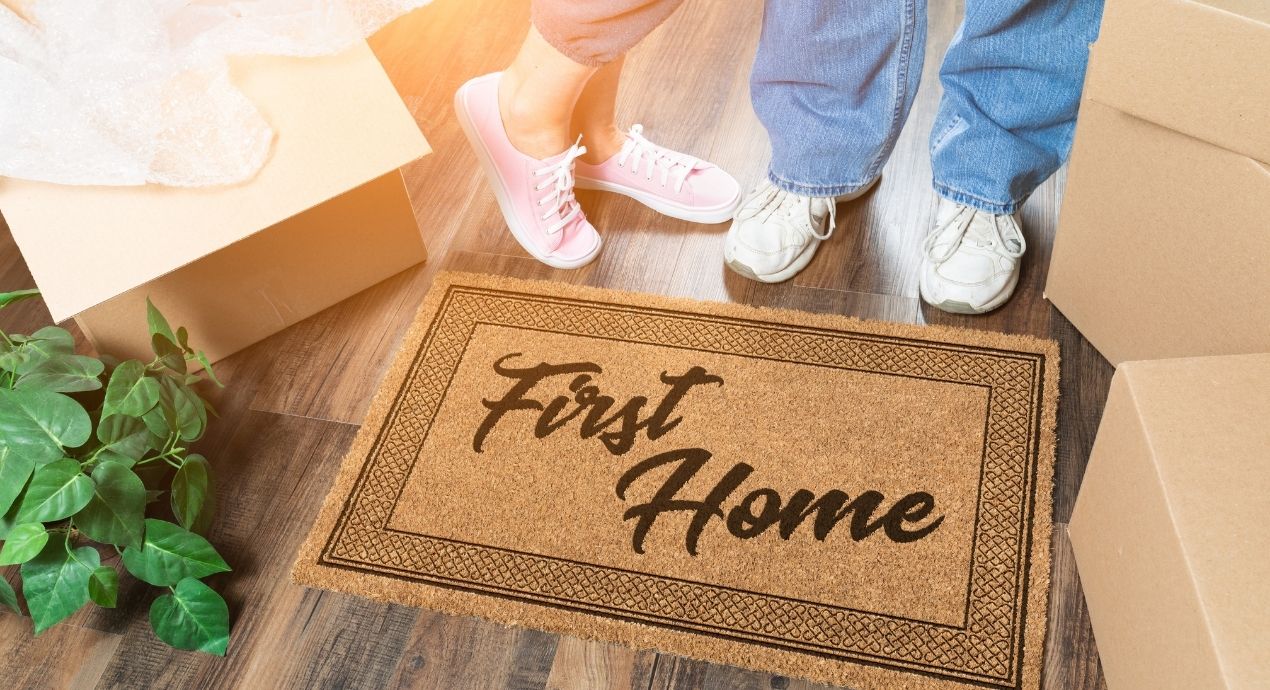
Contemplating coverage?
Subscribe to receive our emails & get
$200 off!
Have questions?
Call us: (833) 544-8273


Written By Erin Easley
First-time homebuyers rarely know what they're getting into. Owning a home could help you establish a solid financial foundation, but it comes with a lot of surprises. Here are six things I wish I had known before buying my first home.

Give buyers and sellers the best protection
at great prices!
Home warranties don't cover as much as you might think. Most of them will pay – or help pay – for replacing appliances like:
Washers
Dryers
Refrigerators
Stoves
Hot water heaters
Many will even cover your HVAC system, which can help you save a lot of money when your system dies during a hot summer or cold winter.
Know exactly what your home warranty covers by reading the fine print and asking questions.
You'd think that any home inspector could do a good job. After all, they have to pass certification tests before they can offer their services to the public. Unfortunately, some of them don't inspect as thoroughly as others.
Before choosing a home inspector, get recommendations from your friends, family members, and your real estate agent. You want to hire an experienced person who cares about getting your inspection right. Even a small mistake could cost you thousands of dollars within a couple of years.
You should know the age of a house's roof before you purchase the property. Typically, you can expect asphalt shingles to last about 20 years, wood shake roofs to last 40 years and copper roofs to last 50 years.
Eventually, the roof will need repairs or a replacement. When the time comes, expect to spend thousands of dollars. It's a hefty investment.
Buying a brand new home doesn't mean you can avoid maintenance. You might spend less time than someone with an older house, but every property requires regular maintenance. Prepare for the time and expense before you decide to purchase a home.
Some regular maintenance that you should perform include:
Checking and replacing the filters in your HVAC system.
Inspecting grout and caulk for signs of wear and tear.
Testing smoke detectors to make sure they work properly.
Looking for leaks in the pipes leading to your sinks, baths and toilets.
You will also need to do some annual maintenance that prepares your home for upcoming seasons. Skip these chores at your own peril. Spending a couple of hours caulking your windows this weekend could help you save a lot of money on energy. Setting aside an afternoon to clean your gutters can help protect everything from your foundation to your roof.
Expect every task to take a little longer than you expect. That's just the way most home maintenance goes.
When you buy a home, you probably pay a lot of attention to the floor plan. For example, you might focus your search on homes with open floor plans that make the indoors feel expansive. If you have your heart set on a certain type of house, narrow your search to properties that fall into that category.
Most people, however, don't realize how much furniture affects the way they use rooms. A relatively small room can feel much more spacious when you use a modular sofa that lets you take advantage of every square foot.
Very few people can afford to purchase a home with cash. You will probably need to borrow money from a lender. It's a long process that requires providing tax, employment and bank documents.
Don't let the effort prevent you from getting offers from multiple lenders. You could find that some lenders are willing to give you lower rates than others. Even a percentage point or two can help you save thousands of dollars over the upcoming decades.
The price of homeowners' insurance can also vary considerably from company to company. Never accept the first offer. Get as many quotes as possible so you can compare them and choose one that fits your needs. Keep in mind that cheaper doesn't always mean better, though. You need a policy that fits your budget, but you also need one that gives you reasonable coverage.
Whether you purchase your dream home or a fixer-upper, you will want to renovate at some point. Small renovations don't have to cost a lot of time or money. They will, however, almost always require more than one person. Two people can hang drywall within a few hours. It isn't that difficult for most homeowners. Try finishing the project on your own, though, and you will run into an endless number of problems.
The bottom line is that you need help with most renovation projects. The next time you want to change your home, call on some friends who can assist. It doesn't matter whether you want to paint a room or build a wall. The second pair of hands matters more than you can imagine.
If your property is in an area with a homeowner association (HOA),you will probably need to follow regulations that exceed your city's property code. Review a copy of the HOA regulations before you decide to buy the home. You could discover ridiculous HOA rules like:
No yard sales or garage sales.
No smoking - inside your own home.
You must carry your dog in the neighborhood.
Most of these rules started as understandable ways to improve the community. Eventually, someone took the interpretation too far. Know what you're getting into before you buy!
Buying your first home is exciting. You get to set down roots, invest in your future and avoid the ever-rising cost of rent. Don't go into the process blind, though. Talk to people who have purchased homes and ask them what they wish they had known before they made the commitment.
Stay Ahead of Potential
Home Mishaps!
Subscribe to our Liberty Home Guard Newsletter and gain access to exclusive content that ensures your peace of mind.